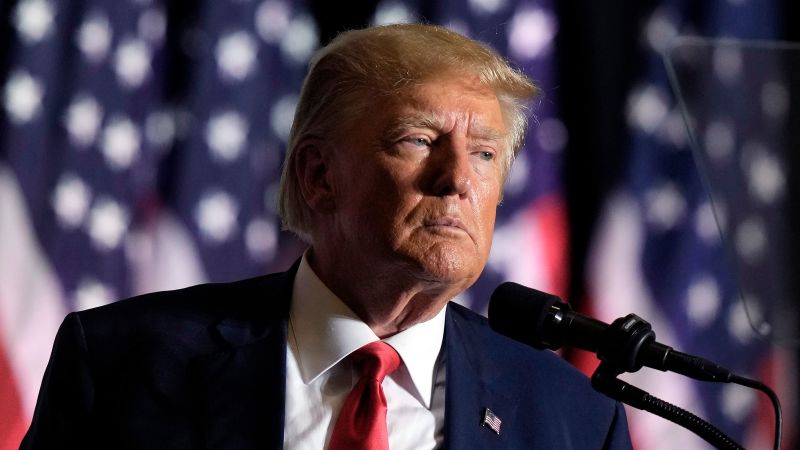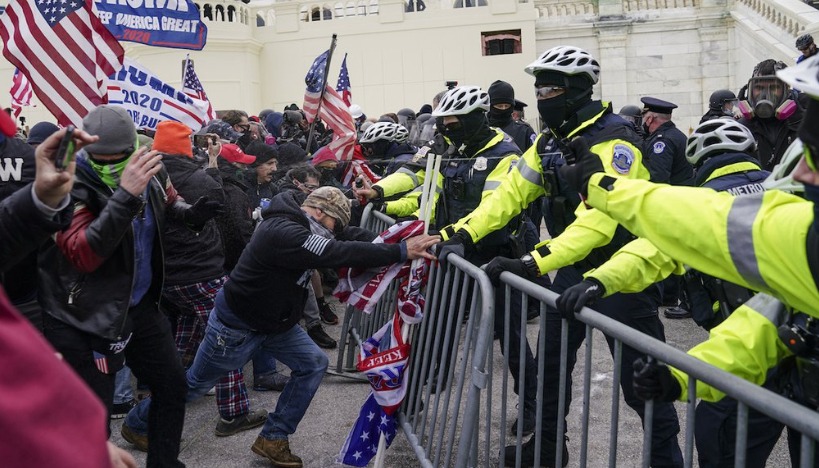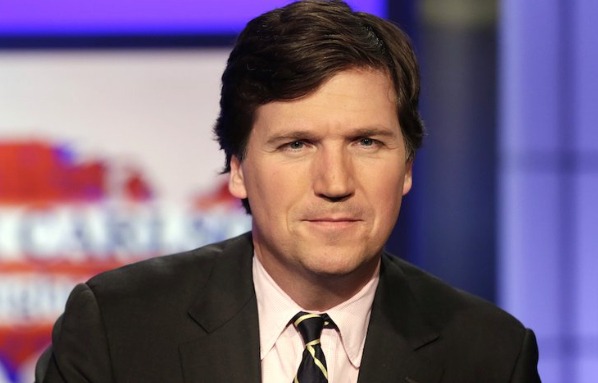Federal Judge Denies Trump’s Attempt to Move New York Indictment to Federal Court
A federal judge has denied Donald Trump’s request to move the New York indictment charging him with falsifying business records into federal court. The judge ruled that Trump failed to demonstrate any connection between the alleged illegal conduct and his role as president.
Judge Alvin Hellerstein had previously indicated that he would reject the case and return it to state court. Trump, who has pleaded not guilty to 34 counts of falsifying business records in relation to hush money payments made to adult film actress Stormy Daniels, is scheduled to go to trial in Manhattan in March 2024.
The judge stated in his ruling that the payments to Daniels were unrelated to presidential duties. He emphasized that hush money paid to an adult film star does not fall under a president’s official acts. The judge also dismissed Trump’s argument for immunity based on his position as president at the time he signed reimbursement checks to his former personal attorney, Michael Cohen.
The judge found that reimbursing Cohen for hush money and falsifying business records to conceal the reimbursement were not presidential duties. Therefore, Trump is not immune from prosecution in New York Supreme Court.
Manhattan District Attorney Alvin Bragg’s spokesperson expressed satisfaction with the federal court’s decision and looks forward to proceeding in New York State Supreme Court. However, a Trump campaign spokesman stated that they will continue to pursue legal avenues to move the case to federal court.
In another setback for Trump, the judge ruled that federal election law does not preempt the state charges of falsifying business records. Trump intends to argue that the federal statute should override the state claim in the case before the judge in state court.
The judge clarified that the only elements required for conviction are the falsification of business records, an intent to defraud, and an intent to commit or conceal another crime. Trump can be convicted of a felony even if he did not commit any crime beyond the falsification, as long as he intended to do so or to conceal such a crime.
Furthermore, the judge rejected Trump’s claim that the case should be moved to federal court due to hostility at the state level. He stated that there is no reason to believe that the New York judicial system would not provide fair treatment and equal justice under the law.
In a significant legal setback for former President Donald Trump, a judge has rejected his attempt to move the hush money case to federal court. The ruling comes as a blow to Trump’s legal team, who had hoped to shift the case away from the state court system, where it has been progressing.
The case in question revolves around allegations that Trump violated campaign finance laws by orchestrating hush money payments to two women who claimed to have had affairs with him. The payments were made just before the 2016 presidential election, raising concerns about their potential impact on the outcome of the race.
Trump’s legal team argued that the case should be heard in federal court, as it involved federal campaign finance laws and the President’s actions while in office. They claimed that the state court system was biased against Trump and that moving the case to federal court would ensure a fairer trial.
However, Judge S. James Otero of the Los Angeles County Superior Court disagreed with Trump’s arguments, stating that the case should remain in state court. In his ruling, Judge Otero emphasized that the alleged campaign finance violations were not directly related to Trump’s official duties as President, and therefore did not warrant a shift to federal court.
This decision is a significant blow to Trump’s legal strategy, as it means that the case will continue to be heard in state court, where it has already made significant progress. The ruling also suggests that the judge does not believe Trump’s claims of bias against him in the state court system.
The hush money case has been a persistent legal issue for Trump, with prosecutors arguing that the payments were made to influence the outcome of the election and therefore violated campaign finance laws. Trump has consistently denied any wrongdoing, claiming that the payments were made to protect his personal reputation and had nothing to do with the election.
The case has garnered significant attention due to its potential implications for Trump’s legal and political future. If found guilty, Trump could face criminal charges and potentially even impeachment proceedings. The case also raises questions about the extent of a President’s immunity from prosecution while in office.
While the rejection of Trump’s attempt to move the case to federal court is a setback for his legal team, it is important to note that this is just one step in a long legal process. The case will now continue in state court, where both sides will have the opportunity to present their arguments and evidence.
As the case progresses, it will undoubtedly attract further scrutiny and attention. The outcome of this legal battle could have far-reaching consequences, not only for Trump but also for the broader understanding of campaign finance laws and the limits of presidential immunity.
In the coming months, all eyes will be on the state court proceedings as they unfold. The hush money case has already proven to be a significant legal challenge for Trump, and the rejection of his attempt to move it to federal court only adds to the complexity and uncertainty surrounding the case.








